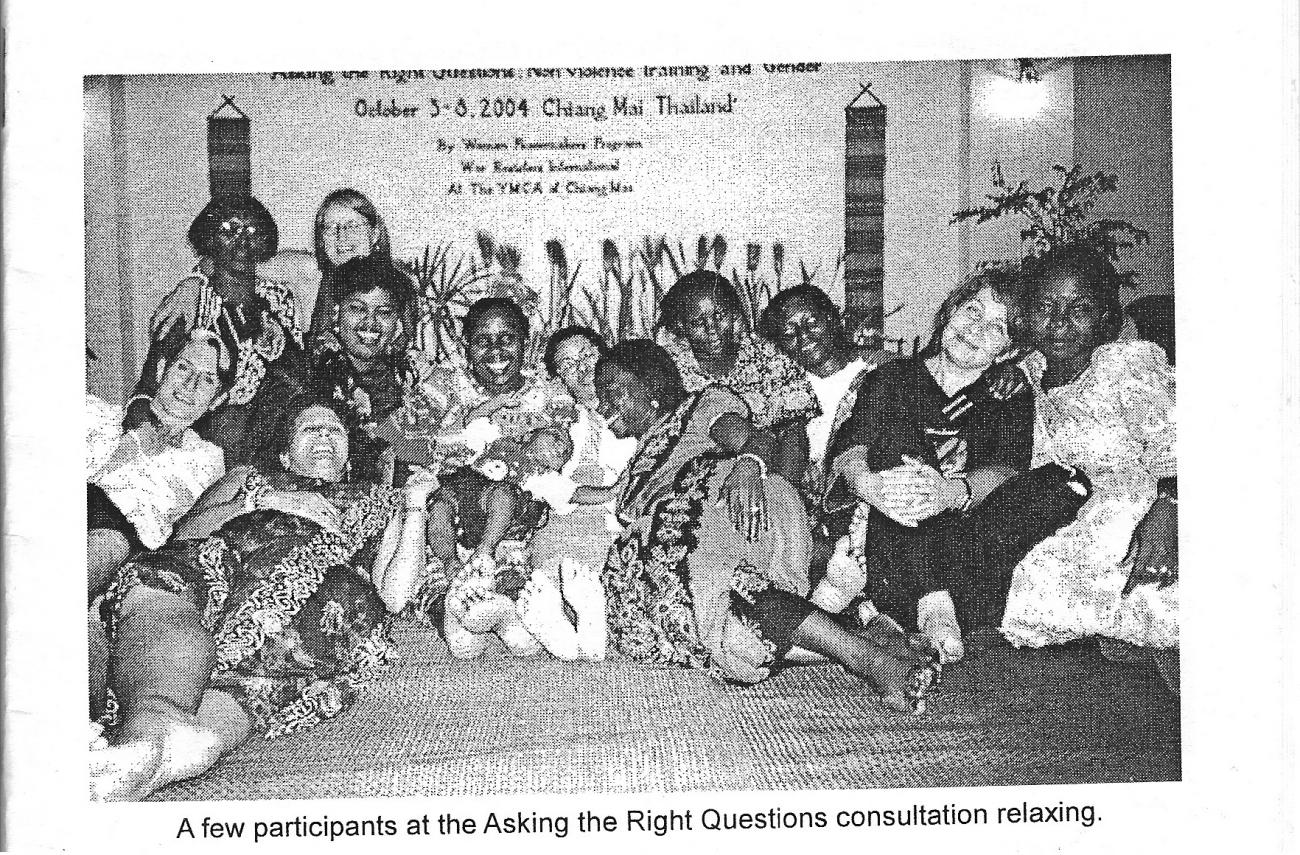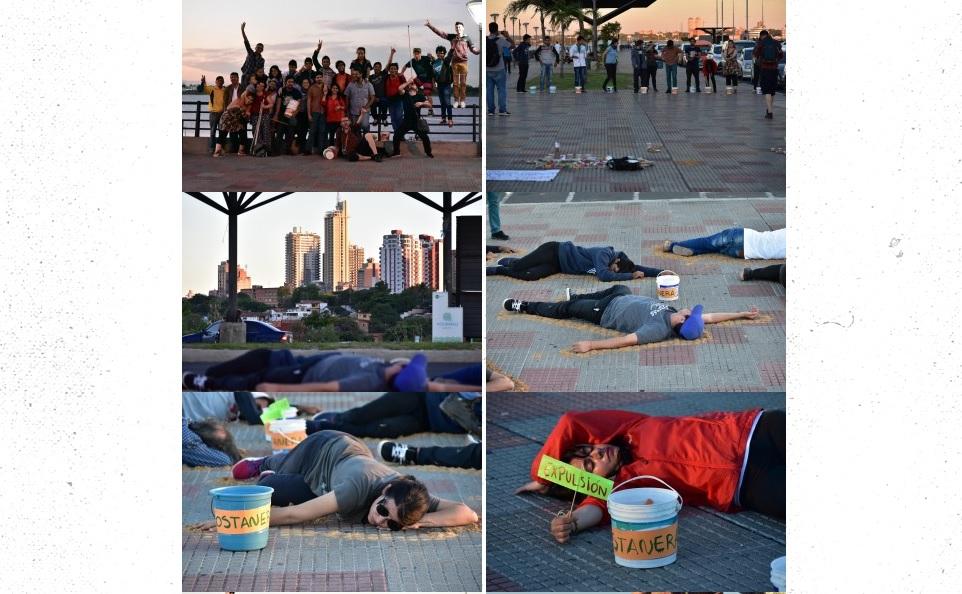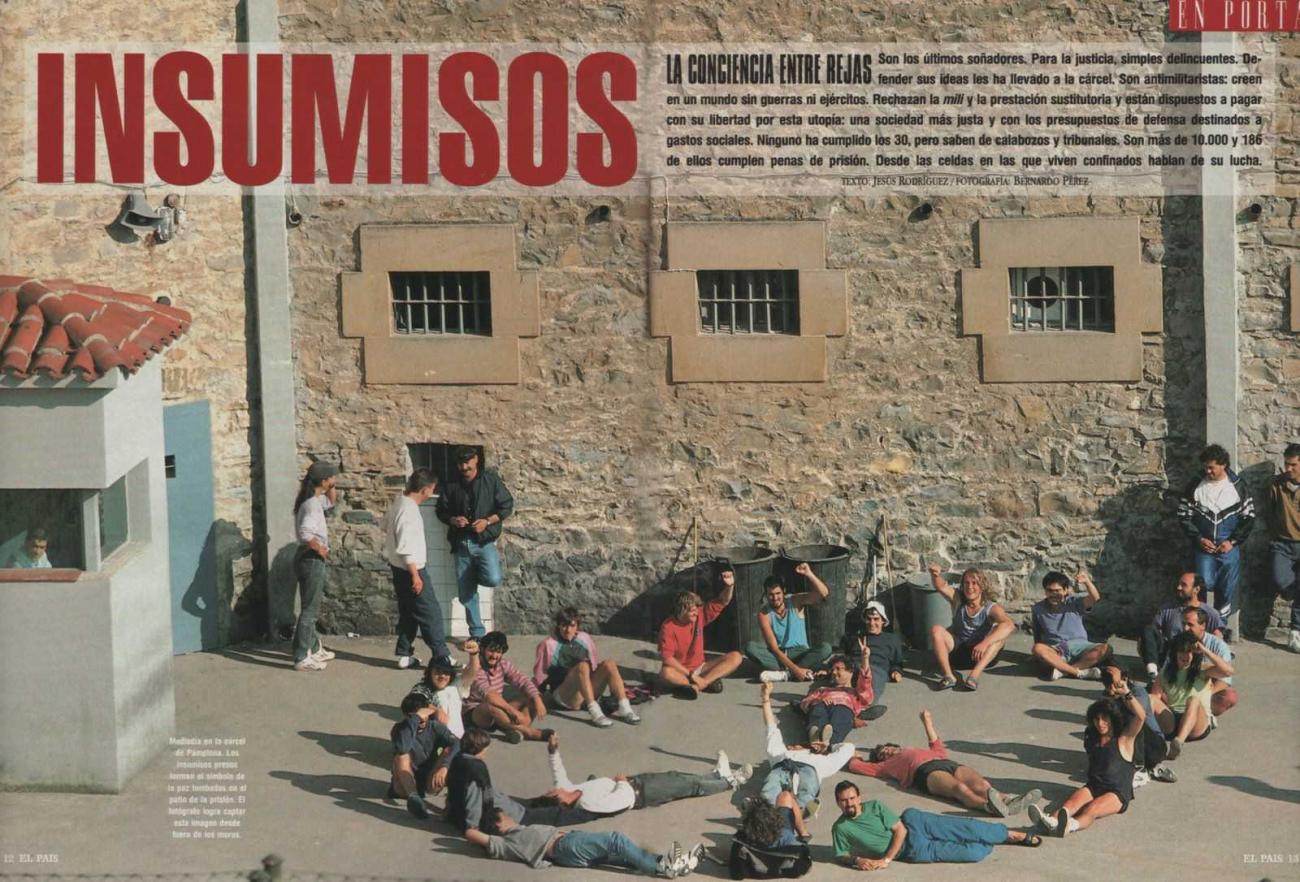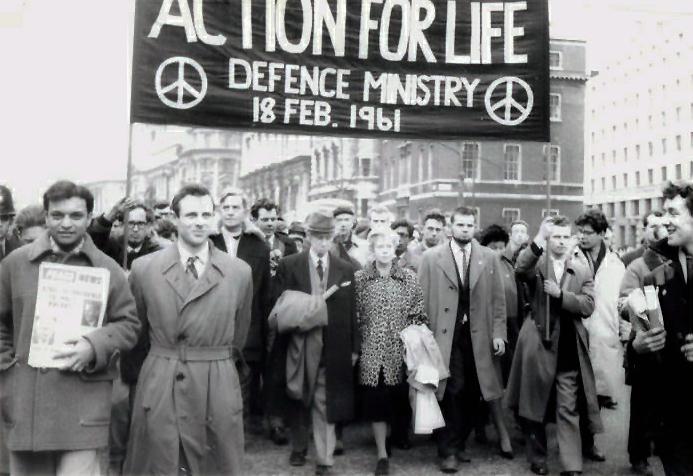The Broken Rifle
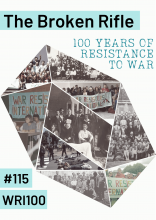
WRI commemorated their 100th anniversary in 2021. As part of this commemoration, alongside social media actions and some public online events that were held during the year, we decided to gather some articles into The Broken Rifle, our main publication.
In this issue, you will find 6 articles that focus on WRI and its network's history, as well as a summary of the actions and events that were organised specially for WRI’s centenary.
We have included a collection of testimonies from past WRI staff members, filled with anecdotes and reflections about WRI and the impact it had in their lives; an interview with Michael Randle who was chairperson of WRI from 1966 to 1973; a brief reconstruction of the history of the WRI's Women's Working Group along with reflections from some of its members (an article we published in a previous Broken Rifle issue); an essay that reflects on the links of the Antimilitarist Network of Latin America and the Caribbean and WRI during the years; an article about The Insumisión campaign that ended with compulsory military service in the Spanish State; and finally an article about the birth and history of the Pan African Nonviolence and Peacebuilding network that highlight, among many other important facts, the involvement and support of WRI before and after its conformation.
The centenary was a good opportunity to look into our history and reflect on the future of our network and the work it does and needs to do, to continue resisting war and all its causes. We hope this special edition of the Broken Rifle motivates the antimilitarism movement to bring from the past all the experiences and learnings into their present activism, to know what practices and approaches are worth continuing and what new ways it needs to create to strengthen their future campaigns and actions.


